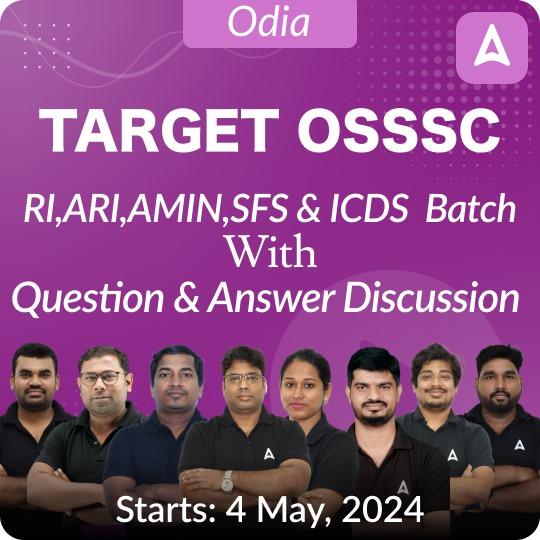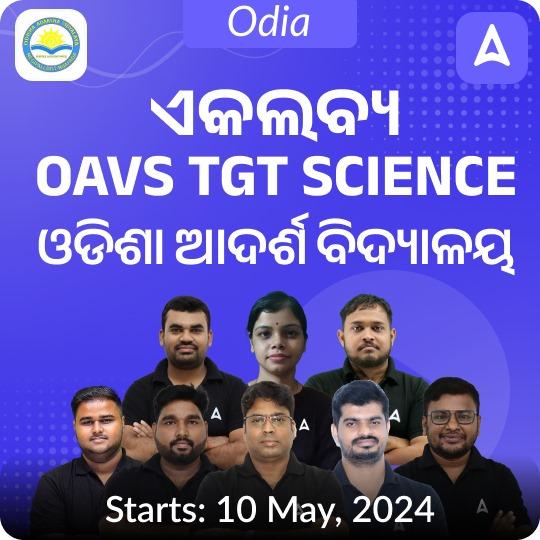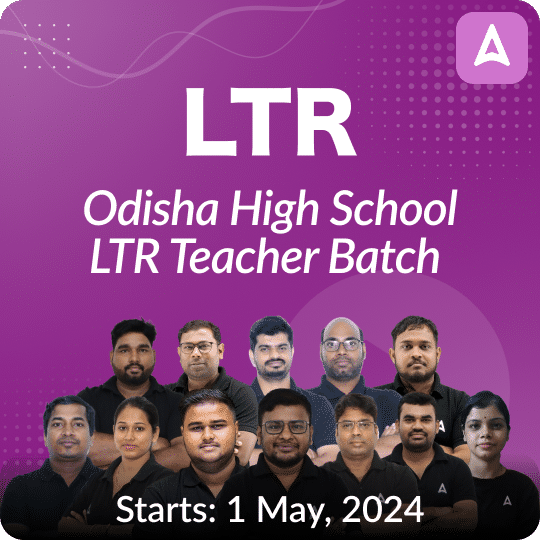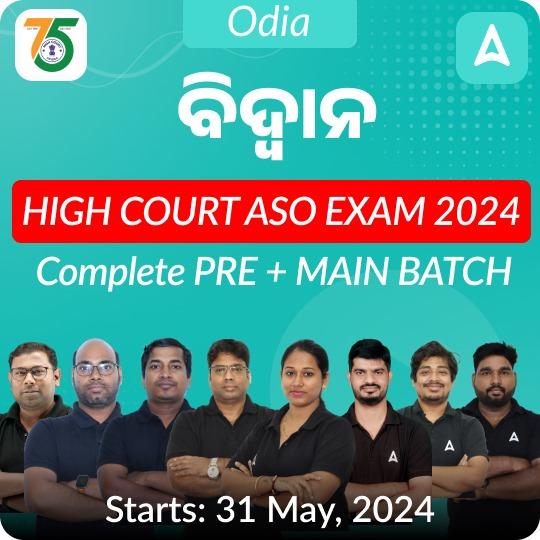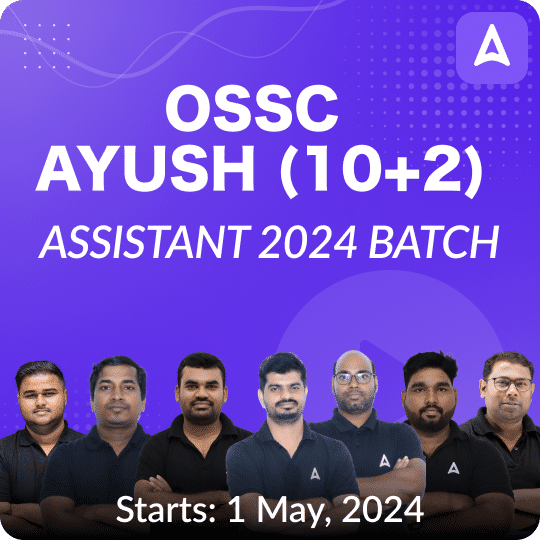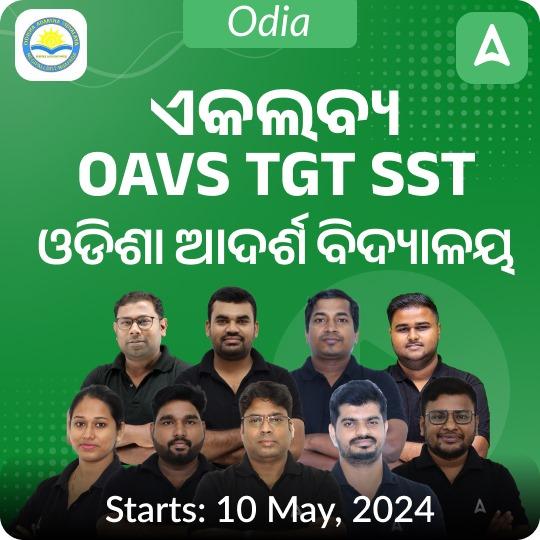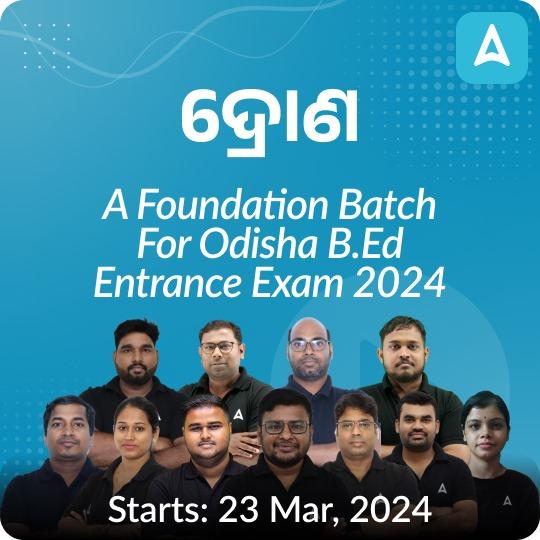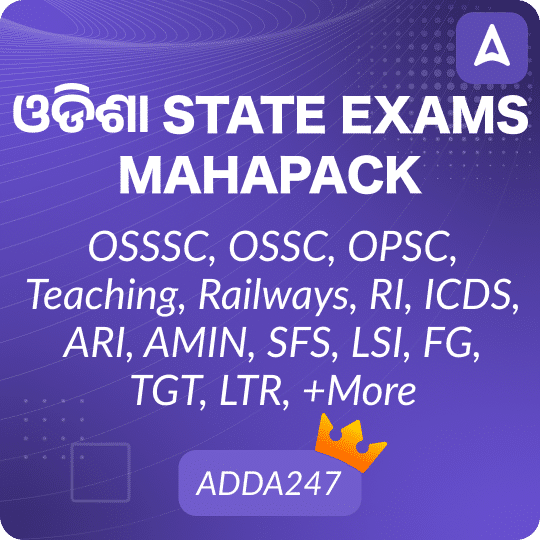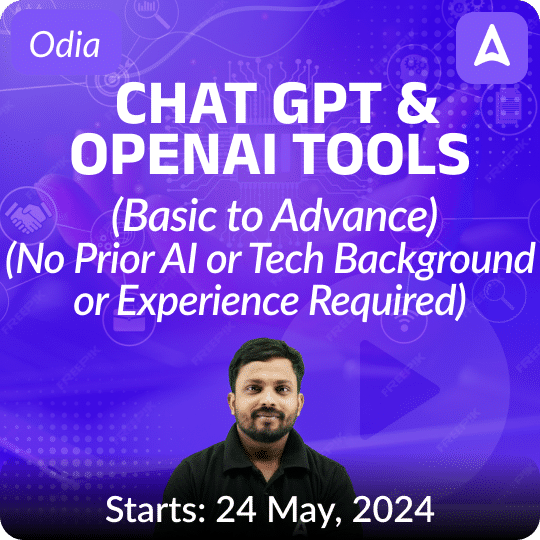Weekly Current affairs play a very important role in the competitive examinations and hence, aspirants have to give undivided attention to it while doing preparation for the government examinations. The CGLRE, OCS examinations comprise a section of “Current Affairs” to evaluate how much the aspirant is aware of the daily happenings taking place around the world. To complement your preparation, we are providing you with a compilation of Weekly Current affairs.
- Which region was recently in the news due to a deadly strike escalating fears of a new war?
(a) West Bank
(b) Gaza Strip
(c) Golan Heights
(d) Sinai Peninsula
Ans: (c) Golan Heights - Golan Heights is a rocky plateau located in which country?
(a) Lebanon
(b) Israel
(c) Jordan
(d) Syria
Ans: (d) Syria - Which major war led to the Israeli occupation of the Golan Heights?
(a) Yom Kippur War
(b) Six-Day War
(c) War of Attrition
(d) Suez Crisis
Ans: (b) Six-Day War - PARAKH is a unit under which Indian educational organization?
(a) AICTE
(b) UGC
(c) NCERT
(d) NTA
Ans: (c) NCERT - What is the full form of PARAKH?
(a) Performance Analysis and Review for Academic Knowledge
(b) Performance Assessment, Review, and Analysis of Knowledge for Holistic Development
(c) Progress Assessment Review and Knowledge Hub
(d) Program for Assessment and Review of Knowledge
Ans: (b) Performance Assessment, Review, and Analysis of Knowledge for Holistic Development - PARAKH was established in which year?
(a) 2020
(b) 2021
(c) 2022
(d) 2023
Ans: (d) 2023 - Which recent report recommended including student performance from Classes 9, 10, and 11 in the final Class 12 marks?
(a) NCF
(b) CBSE Report
(c) PARAKH Report
(d) NEP 2020
Ans: (c) PARAKH Report - The Acceptance of Necessity (AoN) for the Advanced Land Navigation System (ALNS) Mk-II was accorded for which military force?
(a) Indian Navy
(b) Indian Air Force
(c) Indian Army
(d) Border Security Force
Ans: (c) Indian Army - The ALNS Mk-II system is primarily used for which type of vehicles?
(a) Armored Fighting Vehicles
(b) Naval Ships
(c) Aircraft
(d) Infantry Vehicles
Ans: (a) Armored Fighting Vehicles - Which technology is the core of the Advanced Land Navigation System?
(a) Ring Laser Gyro
(b) Optical Fiber Gyro
(c) MEMS Gyro
(d) Mechanical Gyro
Ans: (a) Ring Laser Gyro - Why is the Hoollongapar Gibbon Wildlife Sanctuary in the news?
(a) New wildlife species discovered
(b) Approval for exploratory oil and gas drilling
(c) Increase in protected area size
(d) Establishment of a new research facility
Answer: (b) Approval for exploratory oil and gas drilling - What is the current conservation status of the Hoolock Gibbon?**
(a) Critically Endangered
(b) Endangered
(c) Vulnerable
(d) Least Concern
Answer: (b) Endangered - Which river creates a waterlogged region along the Hoollongapar Gibbon Wildlife Sanctuary’s border?**
(a) Brahmaputra
(b) Ganges
(c) Bhogdoi
(d) Yamuna
Answer: (c) Bhogdoi - What is the primary focus of Exercise Tarang Shakti?**
(a) Humanitarian aid
(b) Strategic military relations
(c) Trade negotiations
(d) Environmental conservation
Answer: (b) Strategic military relations - Which countries are participating in Phase One of Exercise Tarang Shakti?**
(a) France, Germany, Spain, UK
(b) USA, UAE, Singapore, Greece
(c) Australia, Bangladesh, Greece, Spain
(d) India, China, Russia, USA
Answer: (a) France, Germany, Spain, UK - When is Phase One of Exercise Tarang Shakti scheduled?**
(a) August 1 to August 10
(b) August 6 to August 14
(c) August 10 to August 20
(d) August 15 to August 25
Answer: (b) August 6 to August 14 - What is the primary objective of the National Apprenticeship Training Scheme (NATS)?**
(a) Promote higher education
(b) Enhance vocational skills and training
(c) Support research and development
(d) Encourage international trade
Answer: (b) Enhance vocational skills and training - How long is the apprenticeship duration under the National Apprenticeship Training Scheme?**
(a) 3 months
(b) 6 months to 1 year
(c) 1 year to 2 years
(d) 2 years
Answer: (b) 6 months to 1 year - What is the purpose of the NATS 2.0 Portal?**
(a) Facilitate educational loans
(b) Manage apprenticeship registrations and vacancies
(c) Conduct online examinations
(d) Provide scholarship opportunities
Answer: (b) Manage apprenticeship registrations and vacancies - According to the WWF report, what is threatening the survival of sturgeon species?**
(a) Habitat destruction
(b) Pollution
(c) Poaching and trafficking
(d) Climate change
Answer: (c) Poaching and trafficking - What is a significant threat to sturgeon populations?**
(a) Loss of breeding grounds
(b) Overfishing for roe (caviar) and meat
(c) Industrial development
(d) Increased water temperature
Answer: (b) Overfishing for roe (caviar) and meat - Under which regulation is international trade in sturgeon species controlled?**
(a) CITES
(b) IUCN
(c) WWF
(d) UNESCO
Answer: (a) CITES - What year did the CITES regulation for sturgeon come into effect?**
(a) 1995
(b) 1998
(c) 2000
(d) 2002
Answer: (b) 1998 - What recent action did the NPPA take regarding pharmaceutical companies?**
(a) Announced new drug prices
(b) Issued notices for violations of the Drug Price Control Order
(c) Established new drug testing facilities
(d) Increased subsidies for essential medicines
Answer: (b) Issued notices for violations of the Drug Price Control Order - When was the NPPA established?**
(a) 1995
(b) 1997
(c) 1999
(d) 2001
Answer: (b) 1997 - What is the main role of the NPPA?**
(a) To regulate pharmaceutical exports
(b) To set and revise drug prices
(c) To conduct medical research
(d) To oversee pharmaceutical marketing
Answer: (b) To set and revise drug prices - Which department oversees the NPPA?**
(a) Ministry of Health and Family Welfare
(b) Ministry of Chemicals and Fertilizers
(c) Ministry of Environment and Forests
(d) Ministry of Commerce and Industry
Answer: (b) Ministry of Chemicals and Fertilizers - What does the National Pharmaceutical Pricing Authority ensure?**
(a) Quality control of medicines
(b) Availability and affordability of medicines
(c) Pharmaceutical industry growth
(d) International drug standards
Answer: (b) Availability and affordability of medicines - How are apprentices compensated under the National Apprenticeship Training Scheme?**
(a) Monthly salary
(b) Stipend with a portion reimbursed by the government
(c) Daily wages
(d) Performance bonuses
Answer: (b) Stipend with a portion reimbursed by the government - What is the focus of Exercise Tarang Shakti Phase Two?**
(a) Humanitarian missions
(b) Strategic defense partnerships
(c) Environmental protection
(d) Cultural exchanges
Answer: (b) Strategic defense partnerships - Which organization will procure the Advanced Land Navigation System for the Indian Army?
(a) Hindustan Aeronautics Limited (HAL)
(b) Bharat Electronics Limited (BEL)
(c) Defence Research and Development Organisation (DRDO)
(d) Indian Space Research Organisation (ISRO)
Ans: (b) Bharat Electronics Limited (BEL) - Vattezhuthu script was discovered in which Indian state?
(a) Kerala
(b) Tamil Nadu
(c) Karnataka
(d) Andhra Pradesh
Ans: (b) Tamil Nadu - Vattezhuthu script was historically used to write which languages?
(a) Tamil and Kannada
(b) Tamil and Telugu
(c) Tamil and Malayalam
(d) Malayalam and Kannada
Ans: (c) Tamil and Malayalam - The Vattezhuthu script likely developed from which ancient script?
(a) Devanagari
(b) Brahmi
(c) Tamil-Brahmi
(d) Grantha
Ans: (c) Tamil-Brahmi - Vattezhuthu evolved into which script in Kerala?
(a) Koleluttu
(b) Malayalam
(c) Grantha
(d) Tamil
Ans: (b) Malayalam - The National Culture Fund was established under which act?
(a) The Indian Trusts Act, 1882
(b) The Societies Registration Act, 1860
(c) The Companies Act, 1956
(d) The Charitable Endowment Act, 1890
Ans: (d) The Charitable Endowment Act, 1890 - Which Ministry manages the National Culture Fund?
(a) Ministry of Home Affairs
(b) Ministry of Culture
(c) Ministry of Tourism
(d) Ministry of Education
Ans: (b) Ministry of Culture - What is the primary objective of the National Culture Fund?
(a) Promote digital archives
(b) Conserve and protect India’s cultural heritage
(c) Develop educational programs for artisans
(d) Conduct cultural festivals globally
Ans: (b) Conserve and protect India’s cultural heritage - The National Culture Fund facilitates additional space in which type of institutions?
(a) Universities
(b) Libraries
(c) Museums
(d) Theatres
Ans: (c) Museums - The National Culture Fund operates on which model?
(a) Public Private Partnership (PPP)
(b) Government Funded Model
(c) NGO Partnership Model
(d) International Grant Model
Ans: (a) Public Private Partnership (PPP) - Which company received recognition in the Mines Safety Awards 2024?
(a) Tata Steel
(b) Jindal Steel and Power
(c) Vedanta
(d) Hindalco
Ans: (b) Jindal Steel and Power - In which category did the Kasia Iron Ore Mines of JSP win the second prize?
(a) Small Open Cast Metal Mines
(b) Medium Open Cast Metal Mines
(c) Large Open Cast Metal Mines
(d) Underground Metal Mines
Ans: (c) Large Open Cast Metal Mines - What was the category of the award received by Tensa Iron Ore Mines in the Mines Safety Awards 2024?
(a) Small Open Cast Metal Mines
(b) Medium Open Cast Metal Mines
(c) Large Open Cast Metal Mines
(d) Underground Metal Mines
Ans: (b) Medium Open Cast Metal Mines - Who presents the Mines Safety Awards in India?
(a) Ministry of Environment
(b) Directorate General of Mines Safety
(c) Ministry of Coal
(d) National Green Tribunal
Ans: (b) Directorate General of Mines Safety - What is the aim of the Jal Jeevan Mission?
(a) To provide electricity to rural households
(b) To improve sanitation in urban areas
(c) To provide tap water connections to all households
(d) To increase agricultural productivity
Ans: (c) To provide tap water connections to all households - As of now, how many Jal Jeevan projects are underway in Odisha?
(a) 100
(b) 150
(c) 207
(d) 300
Ans: (c) 207 - What percentage of Odisha households have been provided with piped water under the Jal Jeevan Mission?
(a) 50%
(b) 65%
(c) 74%
(d) 80%
Ans: (c) 74% - When was the Jal Jeevan Mission launched?
(a) 15th August 2018
(b) 26th January 2019
(c) 15th August 2019
(d) 2nd October 2020
Ans: (c) 15th August 2019 - Which national park in Odisha reopens to tourists on August 1, 2024?
(a) Simlipal National Park
(b) Nandankanan Zoological Park
(c) Bhitarkanika National Park
(d) Satkosia Tiger Reserve
Ans: (c) Bhitarkanika National Park - Bhitarkanika National Park was closed for how many months?
(a) 1 month
(b) 2 months
(c) 3 months
(d) 4 months
Ans: (c) 3 months - Why was Bhitarkanika National Park closed from May to July?
(a) Due to heavy rainfall
(b) To protect endangered species
(c) For the mating and nesting season of saltwater crocodiles
(d) For maintenance work
Ans: (c) For the mating and nesting season of saltwater crocodiles - How many saltwater crocodiles laid eggs during the closure period at Bhitarkanika National Park?
(a) 50
(b) 75
(c) 100
(d) 114
Ans: (d) 114 - In which district of Odisha is Bhitarkanika National Park located?
(a) Khordha
(b) Cuttack
(c) Kendrapara
(d) Puri
Ans: (c) Kendrapara - What is Bhitarkanika National Park known for?
(a) Largest tiger population in Odisha
(b) Second-largest mangrove ecosystem in India
(c) Highest number of elephants in India
(d) Largest bird sanctuary in Odisha
Ans: (b) Second-largest mangrove ecosystem in India - Which rivers intersect Bhitarkanika National Park?
(a) Brahmani and Baitarani
(b) Ganga and Yamuna
(c) Mahanadi and Godavari
(d) Krishna and Cauvery
Ans: (a) Brahmani and Baitarani - Where is the Gandhamardan Hill located?
a) Between Bargarh and Balangir districts
b) Between Cuttack and Bhubaneswar districts
c) Between Berhampur and Jeypore districts
d) Between Keonjhar and Mayurbhanj districts
Ans: a) Between Bargarh and Balangir districts - What is the elevation of Gandhamardan Hill?
a) 2,500 feet
b) 3,250 feet
c) 4,000 feet
d) 5,000 feet
Ans: b) 3,250 feet - How many medicinal plant species were identified in a 2009 survey on Gandhamardan Hill?
a) 500
b) 912
c) 1,200
d) 1,500
Ans: b) 912 - What did the Odisha government declare Gandhamardan Hill as in 2023?
a) National Park
b) Wildlife Sanctuary
c) Biodiversity Heritage Site
d) Heritage Monument
Ans: c) Biodiversity Heritage Site - Which two temples are located on Gandhamardan Hill?
a) Jagannath Temple and Lingaraj Temple
b) Nrusinghanath Temple and Harishankar Temple
c) Sun Temple and Konark Temple
d) Udayagiri Temple and Khandagiri Temple
Ans: b) Nrusinghanath Temple and Harishankar Temple - What is the primary purpose of the Lord Jagannath Temple Parikrama project?
a) To enhance the temple’s financial resources
b) To provide better darshan and improve temple surroundings
c) To construct a new temple complex
d) To develop a museum near the temple
Ans: b) To provide better darshan and improve temple surroundings - When was the Lord Jagannath Temple Parikrama Project inaugurated?
a) January 15, 2024
b) January 17, 2024
c) January 20, 2024
d) January 25, 2024
Ans: b) January 17, 2024 - What is the cost of the Lord Jagannath Temple Parikrama Project?
a) ₹1,500 crore
b) ₹2,500 crore
c) ₹3,600 crore
d) ₹4,500 crore
Ans: c) ₹3,600 crore - What is the purpose of the 600 MW Upper Indravati Project?
a) Water supply
b) Energy storage and electricity generation
c) Irrigation
d) Industrial cooling
Ans: b) Energy storage and electricity generation - Which organization is developing the Upper Indravati Project?
a) Odisha Hydro Power Corporation (OHPC)
b) National Hydroelectric Power Corporation (NHPC)
c) NTPC Limited
d) Bharat Heavy Electricals Limited (BHEL)
Ans: a) Odisha Hydro Power Corporation (OHPC) - How much forest land is reported to be under encroachment in Odisha?
a) 200.08 sq km
b) 305.08 sq km
c) 405.08 sq km
d) 500.08 sq km
Ans: c) 405.08 sq km - What year was the National Green Tribunal (NGT) established?
a) 2005
b) 2008
c) 2010
d) 2012
Ans: c) 2010 - What is the primary objective of the National Green Tribunal (NGT)?
a) To promote industrial development
b) To expedite the resolution of environmental disputes
c) To enhance agricultural productivity
d) To manage water resources
Ans: b) To expedite the resolution of environmental disputes - Which act is NOT under the jurisdiction of the National Green Tribunal (NGT)?
a) The Water (Prevention and Control of Pollution) Act, 1974
b) The Forest (Conservation) Act, 1980
c) The Air (Prevention and Control of Pollution) Act, 1981
d) The Indian Penal Code
Ans: d) The Indian Penal Code - How many plant species are recorded on Gandhamardan Hill?
a) 855
b) 955
c) 1,055
d) 1,155
Ans: c) 1,055 - What is the primary feature of the 75-meter Heritage Corridor in the Lord Jagannath Temple Parikrama Project?
a) A new temple construction
b) Improved viewing of the temple and surroundings
c) Creation of a water reservoir
d) Installation of a new statue
Ans: b) Improved viewing of the temple and surroundings - Which other hydro pumped storage plant was approved alongside the Upper Indravati Project?
a) 1000 MW Damodar Valley Project
b) 1200 MW Koyna Project
c) 2000 MW Sharavathy Project
d) 3000 MW Narmada Project
Ans: c) 2000 MW Sharavathy Project - What significant cultural event is associated with Gandhamardan Hill?
a) Chhau Dance Festival
b) Rath Yatra
c) Mythological journey of Lord Hanuman
d) Durga Puja
Ans: c) Mythological journey of Lord Hanuman - What kind of zone has been created around the Heritage Corridor in the Lord Jagannath Temple Parikrama Project?
a) Industrial Zone
b) Residential Zone
c) Green Buffer Zone
d) Commercial Zone
Ans: c) Green Buffer Zone - Who confirmed the 2009 survey identifying 912 types of herbs on Gandhamardan Hill?
a) AYUSH Minister Jadhav Prataprao Ganpatrao
b) Odisha Chief Minister Naveen Patnaik
c) Union Minister for Environment
d) Director of Botanical Survey of India
Ans: a) AYUSH Minister Jadhav Prataprao Ganpatrao - What is the purpose of the world’s largest grain storage plan approved by the Government of India?
(a) To increase export of grains
(b) To provide better storage facilities for farmers
(c) To reduce the price of grains in the international market
(d) To create job opportunities in urban areas
Answer: (b) To provide better storage facilities for farmers - Which organization will implement the world’s largest grain storage plan in India?
(a) National Bank for Agriculture and Rural Development (NABARD)
(b) Food Corporation of India (FCI)
(c) National Cooperative Development Corporation (NCDC)
(d) Axis of Resistance
Answer: (c) National Cooperative Development Corporation (NCDC) - Which groups are part of the ‘Axis of Resistance’?
(a) Hezbollah, Hamas, Palestinian Islamic Jihad, Houthis
(b) Hezbollah, Taliban, Al-Qaeda, Houthis
(c) Hamas, Al-Qaeda, Taliban, Kurdish Militants
(d) Hezbollah, Kurdish Militants, Al-Qaeda, Taliban
Answer: (a) Hezbollah, Hamas, Palestinian Islamic Jihad, Houthis - What recent event is likely to increase attacks by the Axis of Resistance against Israel?
(a) A peace treaty signed between Iran and Israel
(b) The assassination of a Hamas leader in Tehran
(c) Economic sanctions imposed by the US on Iran
(d) A new alliance formed between Iran and Saudi Arabia
Answer: (b) The assassination of a Hamas leader in Tehran - What is the main objective of the Women Entrepreneurship Program launched by NSDC?
(a) To increase export of Indian products
(b) To provide loans to women entrepreneurs
(c) To address challenges faced by women in business
(d) To promote men’s entrepreneurship in rural areas
Answer: (c) To address challenges faced by women in business - How many women does the Women Entrepreneurship Program aim to empower across India?
(a) 10 lakh
(b) 15 lakh
(c) 25 lakh
(d) 50 lakh
Answer: (c) 25 lakh - Which organization is NOT mentioned as part of the support for the Women Entrepreneurship Program?
(a) Britannia Industries Limited
(b) National Institute for Entrepreneurship and Small Business Development (NIESBUD)
(c) National Cooperative Development Corporation (NCDC)
(d) Skill India Digital Hub
Answer: (c) National Cooperative Development Corporation (NCDC) - What recent change was made regarding the Open Market Sale Scheme (OMSS)?
(a) State governments are now required to participate in e-auctions.
(b) State governments can directly buy rice from FCI without e-auction.
(c) The OMSS now focuses only on wheat.
(d) OMSS was discontinued for rice purchases.
Answer: (b) State governments can directly buy rice from FCI without e-auction. - What is the main goal of the Open Market Sale Scheme (OMSS)?
(a) To increase rice exports
(b) To enhance food grain supply and moderate prices
(c) To reduce buffer stock levels
(d) To provide direct subsidies to farmers
Answer: (b) To enhance food grain supply and moderate prices - What is a key feature of the Disaster Management (Amendment Bill), 2024?
(a) It proposes the creation of a National Disaster Management Authority for every state.
(b) It introduces a “disaster database” at national and state levels.
(c) It abolishes the National Crisis Management Committee.
(d) It eliminates the need for state-level disaster management authorities.
Answer: (b) It introduces a “disaster database” at national and state levels. - What new authority will be established in state capitals and large cities according to the Disaster Management (Amendment Bill), 2024?
(a) Urban Disaster Management Authority
(b) State Disaster Response Force
(c) National Crisis Management Committee
(d) High-Level Committee
Answer: (a) Urban Disaster Management Authority - What role will the National Disaster Management Authority (NDMA) play under the new bill?
(a) NDMA will oversee local disaster response units.
(b) NDMA will appoint experts and consultants to enhance its functions.
(c) NDMA will replace the State Disaster Management Authorities.
(d) NDMA will only manage disaster relief funds.
Answer: (b) NDMA will appoint experts and consultants to enhance its functions. - Which of the following is NOT included in the new provisions of the Disaster Management (Amendment Bill), 2024?
(a) Establishment of a State Disaster Response Force
(b) Creation of a “disaster database”
(c) Removal of penalties for non-compliance
(d) Statutory recognition for the National Crisis Management Committee
Answer: (c) Removal of penalties for non-compliance - Which organization is tasked with implementing the Women Entrepreneurship Program?
(a) National Institute for Entrepreneurship and Small Business Development (NIESBUD)
(b) National Skill Development Corporation (NSDC)
(c) National Cooperative Development Corporation (NCDC)
(d) Britannia Industries Limited
Answer: (b) National Skill Development Corporation (NSDC) - What will the “disaster database” include according to the Disaster Management (Amendment Bill), 2024?
(a) Only historical data on past disasters
(b) Data on disaster assessment, fund allocation, and mitigation plans
(c) Personal information of disaster victims
(d) International disaster statistics
Answer: (b) Data on disaster assessment, fund allocation, and mitigation plans - Who are the main actors involved in the Axis of Resistance?
(a) US-backed groups
(b) Sunni militant organizations
(c) Iranian-backed militant groups
(d) European Union-supported organizations
Answer: (c) Iranian-backed militant groups - What is the role of the National Buildings Construction Corporation (NBCC) in the grain storage plan?
(a) To provide funding for the project
(b) To oversee the construction of storage facilities
(c) To conduct e-auctions for the grain
(d) To manage the grain storage directly
Answer: (b) To oversee the construction of storage facilities - Which of the following groups is NOT part of the Axis of Resistance?
(a) Hezbollah
(b) Hamas
(c) Al-Qaeda
(d) Houthis
Answer: (c) Al-Qaeda - What new financial support is provided under the Women Entrepreneurship Program?
(a) Interest-free loans
(b) Equity investments
(c) Financial grants
(d) Venture capital funding
Answer: (c) Financial grants - Which region is specifically targeted by the Open Market Sale Scheme (OMSS) for price moderation?
(a) Urban areas
(b) International markets
(c) Deficit regions
(d) Export zones
Answer: (c) Deficit regions - When was Bhitarkanika officially designated as a national park?
(a) 1975
(b) 1980
(c) 1998
(d) 2002
Ans: (c) 1998 - Bhitarkanika National Park was designated as a Ramsar site in which year?
(a) 1995
(b) 1998
(c) 2000
(d) 2002
Ans: (d) 2002 - Bhitarkanika National Park was initially established as a hunting ground for which royal family?
(a) Kanika
(b) Gajapati
(c) Mayurbhanj
(d) Puri
Ans: (a) Kanika - Which organization is responsible for assessing the Mines Safety Awards?
(a) National Mining Association
(b) All-India Mines Safety Association
(c) Mining Welfare Board
(d) Indian Mining Corporation
Ans: (b) All-India Mines Safety Association - What is the primary focus of conservation efforts in Bhitarkanika National Park?
(a) Tiger conservation
(b) Elephant protection
(c) Crocodile conservation
(d) Bird sanctuary development
Ans: (c) Crocodile conservation - What did the Orissa High Court emphasize regarding dying declarations?
a) They are often unreliable.
b) They hold legal sanctity due to their inherent truthfulness.
c) They should not be used as primary evidence.
d) They are only considered in high-profile cases.
Answer: b) They hold legal sanctity due to their inherent truthfulness. - According to the Orissa High Court, why are dying declarations considered trustworthy?
a) They are always recorded in front of a judge.
b) Individuals near death are unlikely to fabricate statements.
c) They are always corroborated by physical evidence.
d) They are often made in the presence of witnesses.
Answer: b) Individuals near death are unlikely to fabricate statements. - What significant decision did the Odisha government announce for Agniveers?
a) A 10% reservation and a five-year age relaxation in state services.
b) Immediate promotion to permanent roles in the armed forces.
c) Exemption from all state taxes.
d) Free education and healthcare benefits.
Answer: a) A 10% reservation and a five-year age relaxation in state services. - What is the primary objective of the Agnipath Scheme?
a) To reduce the age of armed forces personnel and decrease pension liabilities.
b) To increase the recruitment period to ten years.
c) To offer permanent commissions to all recruits.
d) To provide immediate cash benefits to recruits.
Answer: a) To reduce the age of armed forces personnel and decrease pension liabilities. - How long are Agniveers recruited for under the Agnipath Scheme?
a) Two years
b) Four years
c) Six years
d) Ten years
Answer: b) Four years - What financial benefit do Agniveers receive upon completion of their service?
a) A pension plan
b) A one-time Seva Nidhi package of approximately ₹11.71 lakh
c) A scholarship for higher education
d) Immediate cash bonus of ₹5 lakh
Answer: b) A one-time Seva Nidhi package of approximately ₹11.71 lakh - What is the new name of the Biju Swasthya Kalyan Yojana (BSKY)?
a) Gopabandhu Health Scheme
b) Gopabandhu Jan Arogya Yojana (GJAY)
c) Odisha Swasthya Kalyan Yojana
d) BSKY Plus
Answer: b) Gopabandhu Jan Arogya Yojana (GJAY) - How much financial support has the Odisha government allocated for the Gopabandhu Jan Arogya Yojana (GJAY)?
a) Rs 2,000 crore
b) Rs 3,500 crore
c) Rs 5,450 crore
d) Rs 7,000 crore
Answer: c) Rs 5,450 crore - When will the issuance of GJAY cards begin?
a) Immediately after the budget announcement
b) After the budget appropriation bill is passed in September
c) By the end of the current year
d) After the next state election
Answer: b) After the budget appropriation bill is passed in September - What is the main goal of the rabies elimination plan in Odisha?
a) To develop a new vaccine
b) To align with the National Action Plan for Dog Mediated Rabies Elimination (NAPRE) by 2030
c) To import rabies vaccines from abroad
d) To create a state-wide rabies research center
Answer: b) To align with the National Action Plan for Dog Mediated Rabies Elimination (NAPRE) by 2030 - What role will the Housing and Urban Development and Health Departments play in the rabies elimination plan?
a) Conducting public awareness campaigns
b) Vaccinating stray dogs
c) Distributing anti-rabies vaccines to international organizations
d) Training veterinary staff in foreign countries
Answer: b) Vaccinating stray dogs - Under the Agnipath Scheme, what is the tenure for Agniveers in the armed forces?
a) One year
b) Two years
c) Four years
d) Five years
Answer: c) Four years - What happens to Agniveers after their four-year tenure?
a) They are discharged with no further obligations.
b) They may be selected for permanent roles in the armed forces.
c) They receive a cash prize and are offered civilian jobs.
d) They are provided immediate pension benefits.
Answer: b) They may be selected for permanent roles in the armed forces. - What is included in the Seva Nidhi package for Agniveers?
a) A regular monthly salary
b) A one-time payment including their contributions and interest
c) A pension for life
d) Health insurance benefits
Answer: b) A one-time payment including their contributions and interest - How much life insurance coverage is provided to Agniveers during their service?
a) ₹10 lakh
b) ₹20 lakh
c) ₹48 lakh
d) ₹1 crore
Answer: c) ₹48 lakh - What is the primary financial benefit for Agniveers’ families in case of death on duty?
a) A refund of their contributions
b) A total amount of over ₹1 crore, including the Seva Nidhi and unserved salary
c) A monthly pension
d) Free healthcare for the family
Answer: b) A total amount of over ₹1 crore, including the Seva Nidhi and unserved salary - What distinguishes Agniveers’ service from traditional recruitment in terms of pension?
a) They receive a lifetime pension
b) They do not receive a regular pension unless selected for permanent commission
c) They receive a substantial bonus at the end of their tenure
d) They receive free housing for life
Answer: b) They do not receive a regular pension unless selected for permanent commission - What is the expected outcome of the Agnipath Scheme regarding the armed forces?
a) To increase the number of permanent officers
b) To modernize the armed forces and reduce average age
c) To provide immediate promotions to all recruits
d) To offer unlimited service contracts
Answer: b) To modernize the armed forces and reduce average age - What significant change was made to the Biju Swasthya Kalyan Yojana (BSKY) in the recent budget?
a) It was expanded to cover more diseases
b) It was renamed to Gopabandhu Jan Arogya Yojana (GJAY)
c) It was discontinued
d) It was merged with another healthcare scheme
Answer: b) It was renamed to Gopabandhu Jan Arogya Yojana (GJAY) - How will the Odisha government address rabies under the new plan?
a) By focusing solely on vaccine distribution
b) By enhancing rabies research and development
c) By implementing a statewide vaccination program for stray dogs
d) By setting up new rabies treatment centers
Answer: c) By implementing a statewide vaccination program for stray dogs - Why was the Price Monitoring System (PMS) Mobile app recently in the news?
(a) The app was launched for daily price reporting in 2024.
(b) The app’s Version 4.0 was recently launched by the Union Minister.
(c) The app was discontinued due to technical issues.
(d) The app was updated to include international prices.
Answer: (b) The app’s Version 4.0 was recently launched by the Union Minister. - What does the Price Monitoring Division (PMD) primarily do?
(a) Manages international trade agreements.
(b) Monitors prices of selected essential commodities.
(c) Oversees the distribution of agricultural subsidies.
(d) Regulates consumer product safety standards.
Answer: (b) Monitors prices of selected essential commodities. - Which of the following is NOT among the initially monitored commodities in the PMS app?
(a) Rice
(b) Sugar
(c) Bajra
(d) Potato
Answer: (c) Bajra - What is the newly added commodity in the Price Monitoring System?
(a) Groundnut Oil
(b) Turmeric powder
(c) Sunflower Oil
(d) Tea
Answer: (b) Turmeric powder - Until when is the Mahila Samman Savings Certificate (MSSC) scheme set to be available?
(a) March 2024
(b) March 2025
(c) March 2026
(d) March 2027
Answer: (b) March 2025 - What is the maximum deposit allowed under the MSSC scheme?
(a) Rs. 50,000
(b) Rs. 1 lakh
(c) Rs. 2 lakhs
(d) Rs. 5 lakhs
Answer: (c) Rs. 2 lakhs - Which ship represented India in the Maritime Partnership Exercise (MPX) conducted in St. Petersburg?
(a) INS Vikramaditya
(b) INS Kolkata
(c) INS Tabar
(d) INS Delhi
Answer: (c) INS Tabar - What occasion was celebrated during the Maritime Partnership Exercise between India and Russia?
(a) Russian Independence Day
(b) Russian Navy Day
(c) International Maritime Day
(d) Russian Space Day
Answer: (b) Russian Navy Day - What does the Standardised Precipitation Index (SPI) measure?
(a) Air pollution levels
(b) Ocean currents
(c) Precipitation and drought-like conditions
(d) Temperature variations
Answer: (c) Precipitation and drought-like conditions - Which organization recently used the SPI to analyze precipitation trends in India?
(a) National Weather Service
(b) India Meteorological Department
(c) Geological Survey of India
(d) Indian Space Research Organisation
Answer: (b) India Meteorological Department - Which agency is responsible for the Bhartiya Beej Sahkari Samiti Limited (BBSSL)?
(a) Ministry of Agriculture
(b) Ministry of Cooperation
(c) Ministry of Finance
(d) Ministry of Rural Development
Answer: (b) Ministry of Cooperation - When was the Bhartiya Beej Sahkari Samiti Limited (BBSSL) established?
(a) 2000
(b) 2002
(c) 2004
(d) 2006
Answer: (b) 2002 - Which of the following is NOT a function of BBSSL?
(a) Production of quality seeds
(b) Procurement and distribution of certified seeds
(c) Regulation of international trade in seeds
(d) Improving crop yield
Answer: (c) Regulation of international trade in seeds - Which of the following commodities was NOT included in the initial list monitored by the PMS app?
(a) Milk
(b) Butter
(c) Onion
(d) Brinjal
Answer: (b) Butter - Which organization is NOT a promoter of BBSSL?
(a) IFFCO
(b) KRIBHCO
(c) NAFED
(d) Indian Council of Agricultural Research
Answer: (d) Indian Council of Agricultural Research - What is the fixed interest rate of the MSSC scheme?
(a) 6.5%
(b) 7.0%
(c) 7.5%
(d) 8.0%
Answer: (c) 7.5% - Which country conducted a Maritime Partnership Exercise with India in St. Petersburg?
(a) China
(b) Japan
(c) Russia
(d) United States
Answer: (c) Russia - What is the significance of the Maritime Partnership Exercise (MPX) between India and Russia?
(a) Enhances trade relations
(b) Marks a milestone in maritime cooperation
(c) Focuses on joint military operations
(d) Addresses space exploration
Answer: (b) Marks a milestone in maritime cooperation - Which of the following is a characteristic of the Standardised Precipitation Index (SPI)?
(a) Measures air quality
(b) Calculates sea level pressure
(c) Indicates wet or dry conditions
(d) Tracks wind speed
Answer: (c) Indicates wet or dry conditions - Which of the following is a newly added commodity to the PMS app’s monitoring list?
(a) Maida
(b) Gur
(c) Soya Oil
(d) Tea
Answer: (a) Maida - What was the percentage growth in Odisha’s GST collection for the month of July?
(a) 12%
(b) 14%
(c) 16%
(d) 18%
Ans. (c) 16% - What was the total GST collection for Odisha in July?
(a) Rs 4,500.50 crore
(b) Rs 4,925.02 crore
(c) Rs 5,000.00 crore
(d) Rs 4,850.30 crore
Ans. (b) Rs 4,925.02 crore - What does GST stand for?
(a) General Sales Tax
(b) Goods and Services Tax
(c) Government Services Tax
(d) Goods and Sales Tax
Ans. (b) Goods and Services Tax - Which of the following is a key benefit of GST?
(a) Increases the number of indirect taxes
(b) Increases the cascading effect of taxes
(c) Reduces interstate trade barriers
(d) Reduces tax compliance
Ans. (c) Reduces interstate trade barriers - Which amendment introduced Articles 246A, 269A, and 279A to the Indian Constitution?
(a) 97th Amendment
(b) 122nd Amendment
(c) 100th Amendment
(d) 72nd Amendment
Ans. (b) 122nd Amendment - Article 246A provides concurrent powers to which of the following entities to make laws on GST?
(a) Centre and Local Bodies
(b) States and Municipalities
(c) Centre and States
(d) Centre and Panchayats
Ans. (c) Centre and States - Article 269A is related to the levy and collection of which type of GST?
(a) Central GST (CGST)
(b) State GST (SGST)
(c) Integrated GST (IGST)
(d) Local GST (LGST)
Ans. (c) Integrated GST (IGST) - What is the primary role of the GST Council as established under Article 279A?
(a) Levy and collection of taxes
(b) Resolve disputes between states
(c) Make recommendations on GST-related matters
(d) Provide financial assistance to states
Ans. (c) Make recommendations on GST-related matters - The Panchayats (Extension to Scheduled Areas) Act (PESA) was enacted in which year?
(a) 1992
(b) 1996
(c) 2001
(d) 2010
Ans. (b) 1996 - What is the primary purpose of the PESA Act?
(a) To centralize governance in Scheduled Areas
(b) To empower tribal communities with self-governance
(c) To abolish the Panchayati Raj system in tribal areas
(d) To implement urban governance in rural areas
Ans. (b) To empower tribal communities with self-governance



